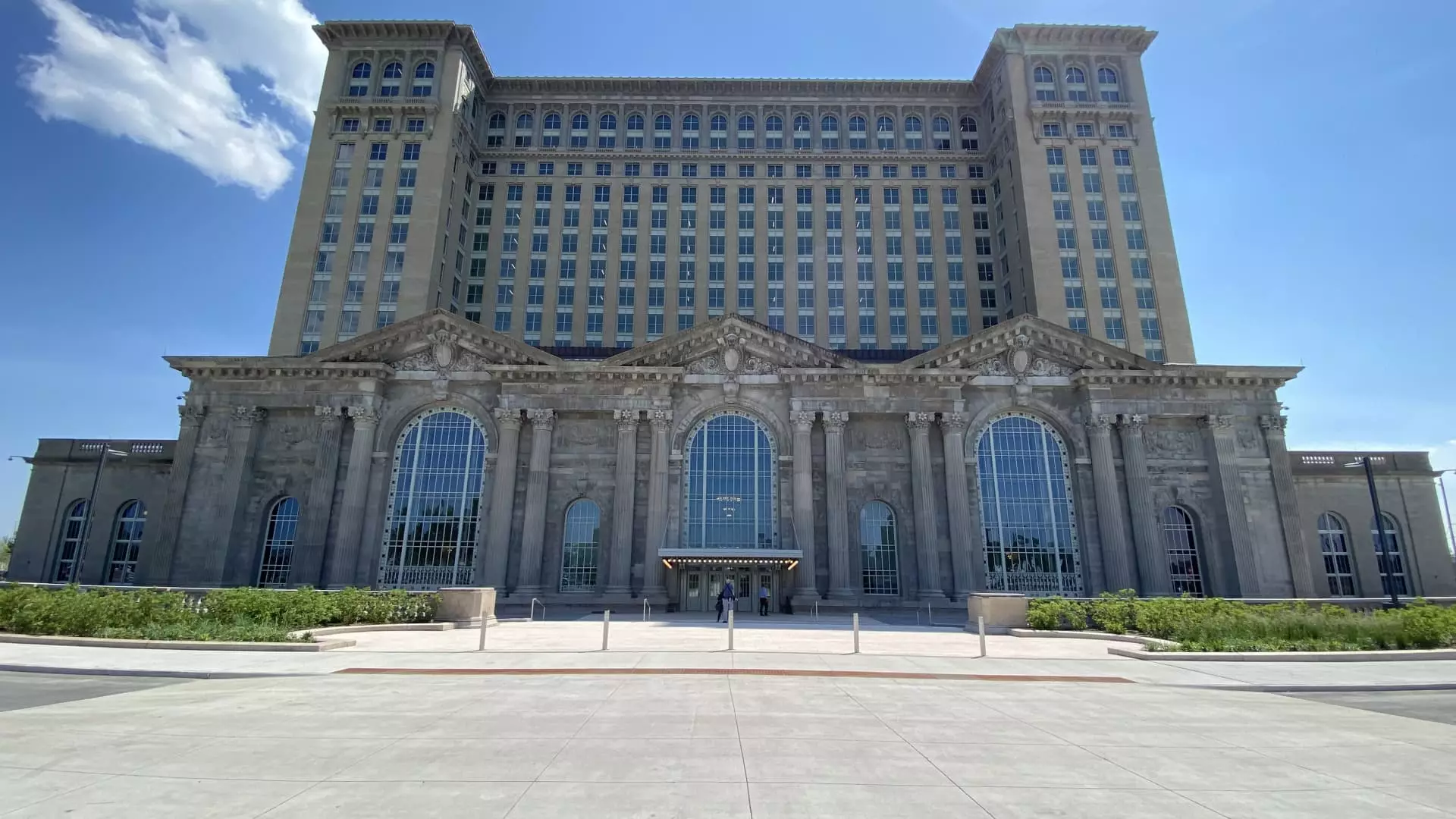The restoration of Michigan Central Station, once a symbol of decay in Detroit, is now a significant project initiated by Ford Motor Company. The $950 million investment encompasses the 18-story train station along with an adjacent 270,000-square-foot building and other supporting facilities. This project, initially scheduled to be completed by 2022, faced delays due to the pandemic and the extensive renovation work required.
In the face of a changing business landscape and the trend toward downsizing office space, Ford’s decision to invest in the Michigan Central campus is a bold move. While many companies are adapting to remote work, Ford’s Chairman, Bill Ford Jr., views this investment as crucial for talent acquisition and retention. He emphasizes the importance of providing employees with stimulating challenges to solve and a conducive work environment, both of which the Michigan Central campus aims to offer.
Bill Ford’s vision extends beyond just renovating a building; it involves attracting top talent to Detroit, a challenge he acknowledges. By showcasing the beauty and the potential of Michigan Central, Ford aims to position the campus as a valuable resource for the company’s future. Located in Corktown, the trendy neighborhood southwest of Detroit’s main business district, the campus aims to offer a mix of commercial spaces, retail, restaurants, and hospitality.
Ford officials left no stone unturned in the painstaking restoration of Michigan Central Station, drawing inspiration from historical photos and materials to recreate the building’s original grandeur. Despite decades of neglect and vandalism, the restoration process aimed to retain the essence of the train station’s dormant years. This meticulous restoration is a testament to Ford’s commitment to preserving Detroit’s architectural heritage.
With plans to accommodate 2,500 employees primarily focused on electric vehicles and connected services, Ford envisions a collaborative environment where employees can interact with startups and educational institutions. The proximity of the Detroit Public Schools Book Depository, housing employees from startup companies, further enhances the ecosystem within the Michigan Central campus. Google’s involvement in running educational programs adds another dimension to the innovation ecosystem envisioned for the campus.
Bill Ford’s involvement in transformative projects in Detroit, such as relocating the Detroit Lions and redeveloping the River Rouge Assembly plant, underscores his commitment to revitalizing the city. Michigan Central Station stands as a testament to his vision for combining historical preservation with technological innovation. As he describes it, the project is not just about creating a new workplace but also a public space for the community to engage with.
The restoration of Michigan Central Station represents more than just a renovation project; it symbolizes a transformation of a historical landmark into a thriving hub of innovation and collaboration. Ford Motor Company’s investment in this iconic building reflects a commitment to Detroit’s revitalization and the creation of a vibrant ecosystem for talent and creativity to flourish. As Michigan Central Station opens its doors to employees and the public, it heralds a new chapter in Detroit’s journey towards economic growth and technological advancement.

